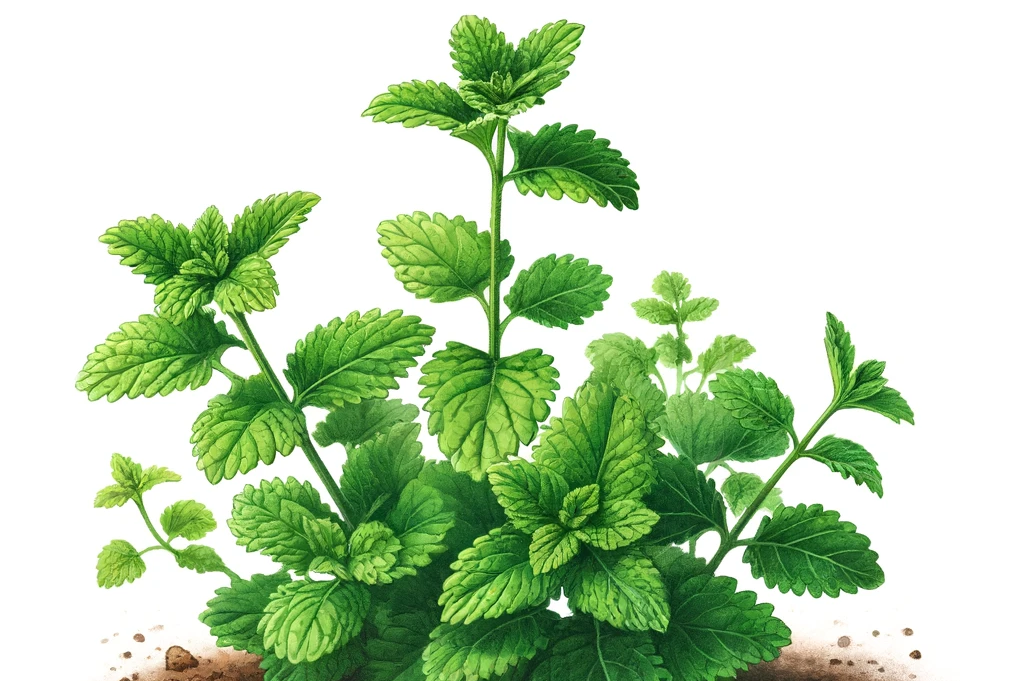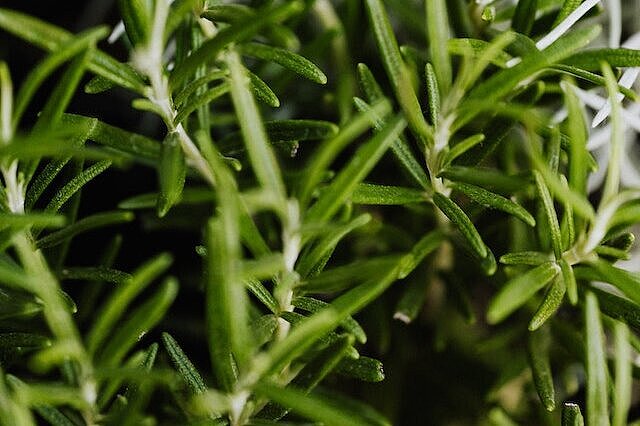Mountain mint

What is mountain mint?
Mountain mint is a perennial plant that is native to Europe, Asia and Africa. It has gray-green leaves and white or pink flowers that exude a strong fragrance. The plant contains various essential oils, terpenes and iridoids, which are responsible for its characteristic smell and taste.
How does mountain mint affect dogs?
The effect of mountain mint on dogs is not as strong as on cats, but it is still noticeable. Some dogs show an interest in the plant and like to chew or sniff it. Other dogs ignore it or even avoid it. The reaction depends on the individual disposition and character of the dog.
Mountain mint has a calming and relaxing effect on dogs, similar to valerian. It can help to reduce stress, anxiety and restlessness and promote sleep. Mountain mint also has an antibacterial, anti-inflammatory and antispasmodic effect, which can help with various ailments such as gastrointestinal problems, respiratory infections or skin irritations.
What are the benefits of mountain mint for dogs?
Mountain mint can have various benefits for dogs when used in moderation. For example:
- It can act as a natural calming agent when the dog is nervous or anxious, for example during thunderstorms, fireworks or car rides.
- It can be used as a toy or reward to keep the dog occupied and stimulated. Some dogs love to play with a pillow or toy filled with mountain mint.
- It can be used as a dietary supplement to improve digestion and boost the immune system. You can mix mountain mint into their food as fresh or dried leaves or make it into a tea.
What are the disadvantages of mountain mint for dogs?
Mountain mint is generally safe for dogs as long as it is not consumed in large quantities. However, an overdose can lead to side effects such as nausea, vomiting, diarrhea or drowsiness. Care should also be taken to ensure that the dog is not allergic to mountain mint or taking other medications that could interact with it.
Mountain mint should also not be fed to pregnant or nursing bitches, as it can stimulate labor. You should also be careful if your dog suffers from liver or kidney problems, as mountain mint can put a strain on these organs.
Mountain mint is an interesting ingredient for dogs that can have both positive and negative effects. It can be used as a natural medicinal plant or as a fun factor, but only in small quantities and with caution.
Properties 20
Are you looking for other ingredients with a specific property?
Just click on them to find more.
If you notice any signs of hypersensitivity or poisoning in your dog, you should see your vet immediately. We are not a substitute for a vet, but we try to be as accurate as possible. Every dog reacts differently and we recommend you get a second opinion or consult your vet if in doubt.
Stay healthy and take good care of your four-legged friend!😊
Similar to Mountain mint
Peppermint is a perennial plant from the labiate family. It has green leaves with serrated edges and purple flowers. It grows in temperate climates and can reach a height of up to one meter....
Lemon balm belongs to the labiate family and is related to mint, sage and thyme. It has small white or pink flowers that attract many bees. The leaves of the plant contain essential oils, tannins,...
Thyme belongs to the labiate family and grows mainly in the Mediterranean region. It has small green leaves and pink or white flowers that attract many bees. Thyme contains essential oils such as...
Rosemary is a spice plant that is widely used in Mediterranean cuisine. The plant has small, needle-shaped leaves and an intense, woody taste and smell. Rosemary is often used as a spice in meat and...



